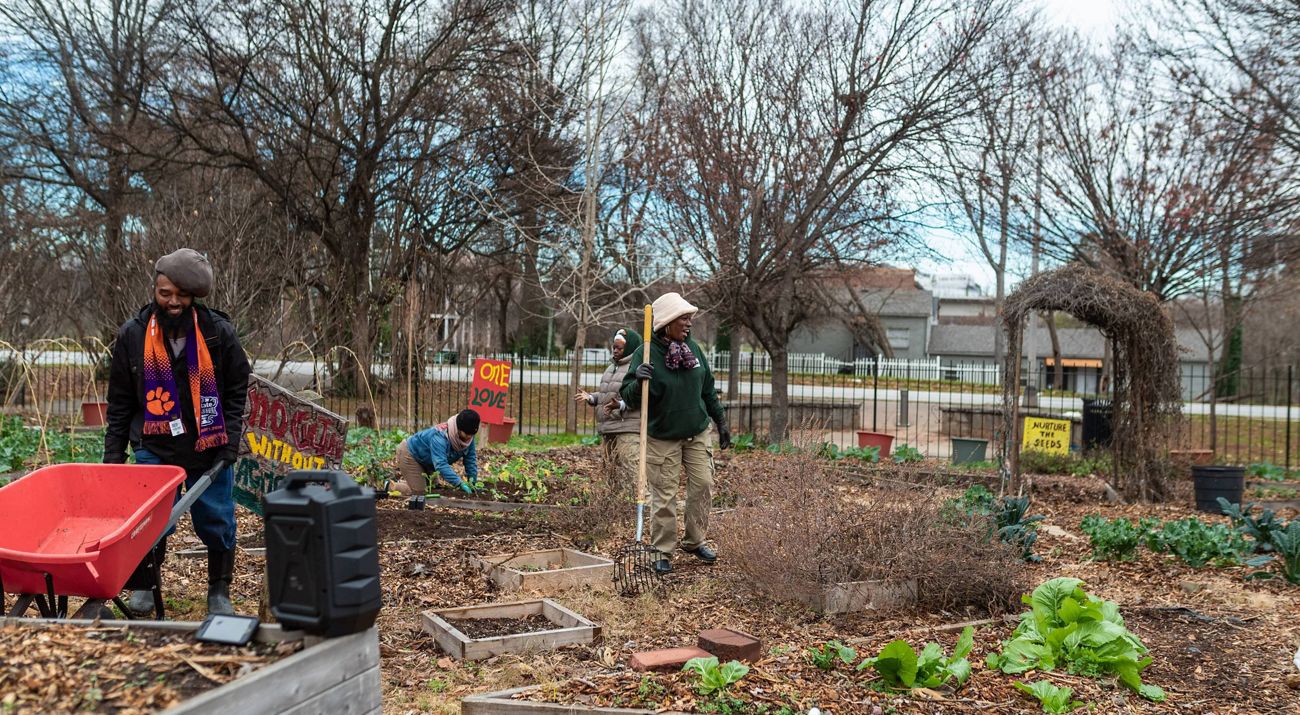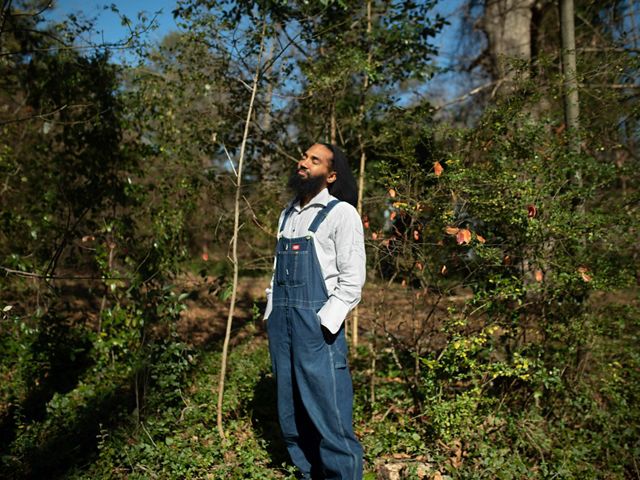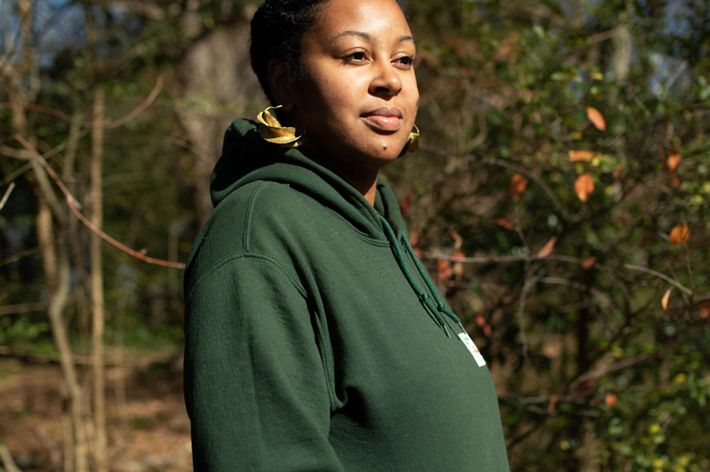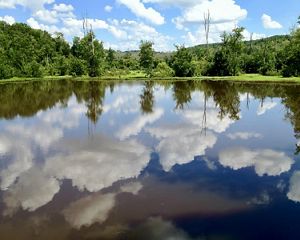
It’s a Monday, and Stephanie Williams is delighted to be at work, pruning, weeding, planting and restoring the yard of a local elderly woman.
“For the past year, she hadn’t been able to get outside and take care of her yard. Everything was overgrown. She hadn’t had any help in a while,” says Stephanie. “When we left, she was finally able to see her yard and her home for the first time in a long time. That moment, with her standing there laughing and smiling, that was my most favorite moment.”
Stephanie has dedicated much of her professional life to uplifting her community, and in recent months, she has been giving back and learning new skills as a trainee with Urban Green Jobs, a workforce development initiative co-created by HABESHA, Inc. and The Nature Conservancy (TNC). The initiative was launched in 2017, but HABESHA has been a fixture in Atlanta for nearly two decades, promoting Pan-African culture, cultivating new leaders and economic vitality, and practicing environmental sustainability throughout metro Atlanta. HABESHA stands for “Helping Africa by Establishing Schools Home and Abroad.”
“HABESHA was really a natural partner for us,” says TNC Atlanta Program Director Ayanna Williams. “They have a history of working within the community.”
Quote: Stephanie Williams
Everything I have learned here has taken me to another level. Not only in my community work, but physically and spiritually as well.

Supporting New Environmental Stewards with Urban Green Jobs
The Urban Green Jobs program employs and elevates area residents as environmental stewards in an area where industrial spaces and heavily trafficked interstates cut through miles of creeks, streams, and undeveloped urban tree canopy. The program leverages the passion of locals like Stephanie to deepen relationships between people and nature. It’s also an opportunity for program trainees to develop a toolkit of conservation skills like water quality testing, sustainable agriculture practices, green infrastructure development and other technical competencies that will help them compete in the burgeoning green jobs industry.
For Stephanie, the best part of Urban Green Jobs is being an agent of positive change within her community and working on projects like the sustainable garden at Thomasville Heights Elementary School, which the trainees maintain with students.
“I actually went to Thomasville Heights Elementary School,” Stephanie says. “Growing up, I never would’ve been able to pick and eat vegetables right out of the garden. Never in a million years would I have thought I could do that, but now kids are getting that experience.”
Developing Leaders and Community Enrichment
Beyond conservation work, the Urban Green Jobs trainees follow a curriculum that provides lessons in emotional intelligence, leadership development, community enrichment and cultural pride.
The program cohort spans generations and feels like a family, says Stephanie. She benefits from the mentorship and support provided by Urban Green Jobs elders like Mama Ruby, a local retiree and the most senior trainee in the program.
“Everything I have learned here has taken me to another level. Not only in my community work, but physically and spiritually as well,” Stephanie says. “It has gotten me out of my comfort zone and really opened me up.”
Over the years, Urban Green Jobs has planted and maintained 300 trees, stewarded eight community gardens, provided greenspace management for seniors, community partners and schools, completed impactful river cleanups, monitored water quality at two sites along the South River, and more. Ecological restoration and economic vitality are at the heart of this initiative, and it is enacted intentionally, with cultural fluency, and aligning with community needs.
A Program Built by the Community
“The Nature Conservancy trusted us to design this program to fit the population," says HABESHA Program Manager Raina Turner-Greenlea. "We were able to develop something that was not just a cookie cutter model program. That has been really important. Other organizations come in and they are evoking a lot of change, but the community hasn’t had a hand in that development.”
Looking ahead, the city of Atlanta envisions a 3,500-acre public greenspace for the area that would protect urban tree canopy, conserve a key piece of undeveloped land and provide a green amenity for the residents of Thomasville Heights and other surrounding communities. The park could also bring jobs to the community.
“We are looking at ongoing opportunities for job training and networking, and ensuring our participants are getting the certifications they need for employment,” says Ayanna.
At her own nonprofit based a few miles north in Decatur, Georgia, Stephanie is integrating the conservation strategies and personal development lessons she learned with Urban Green Jobs. Her organization, Leaders Thinkers Doers, is working with Peachcrest Elementary School and the local Boys and Girls Club on a sustainable garden project. She is in conversation with local park managers about future community conservation work.
Stephanie’s growth illustrates one of many possible outcomes for trainees. HABESHA and TNC hope to continue building Urban Green Jobs with increased community buy-in and further support for leaders like Stephanie in their professional and personal development.
“It’s been a journey, and it’s been a beautiful journey,” says Raina. “But there’s a lot more work left to do.”



